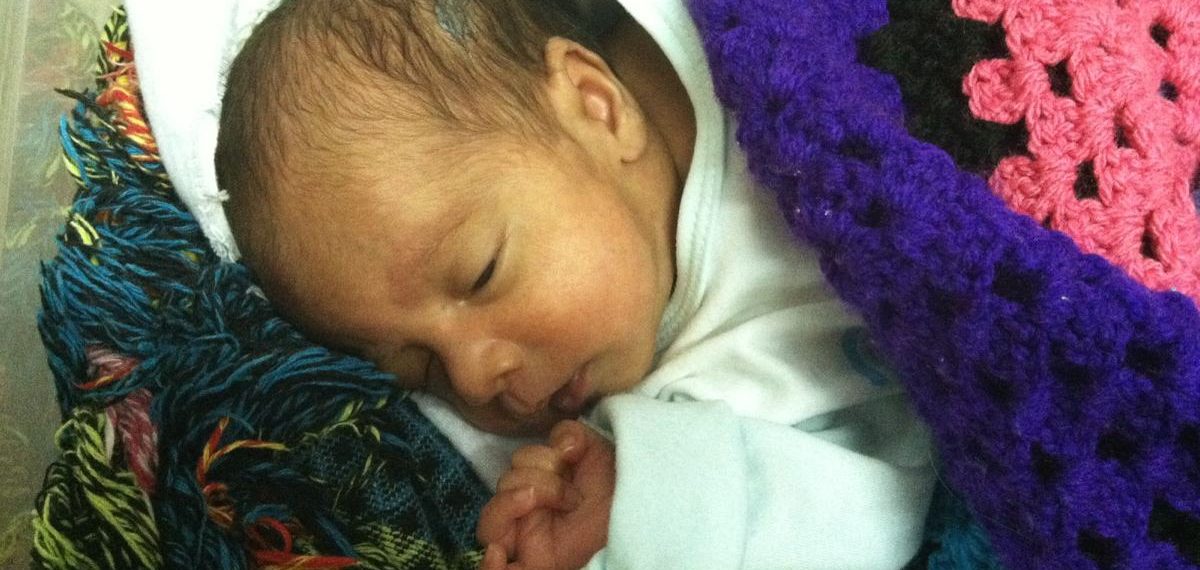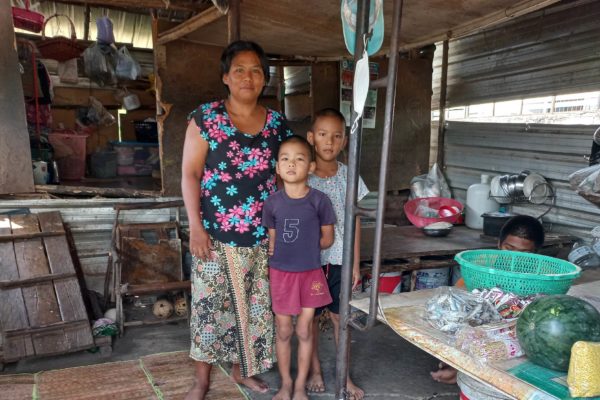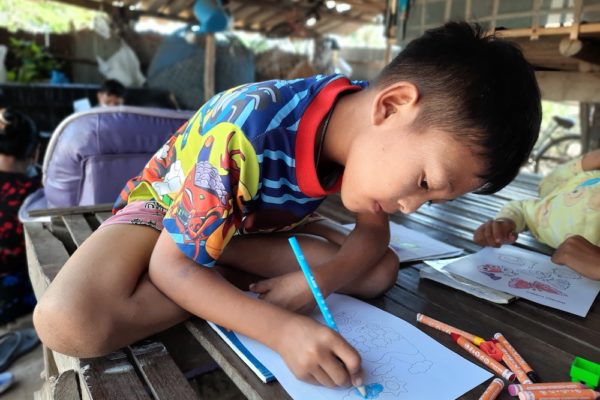She Left Her Baby and Never Came Back

“The tiny baby boy lay under the blue light for treating jaundice. Bright and alert, his eyes searched around steadily, seeking someone to look at, someone to interact with him. He was less than 2 pounds when born, but gaining steadily, and getting strong and healthy. The volunteer midwives loved him, and held him, and worried about his future.
Just days after he was born so tiny and frail, his mother left the clinic without him, never to return. The staff member I talked to thought his mother probably didn’t expect him to live, and left because she had other children at home to attend to. The contact information they had didn’t help locate her. They waited 30 days before notifying social services. He still needed treatment, after all. Maybe his mother would come back for him.
They let me hold him once, while I was in the same room supporting one of our clients, a mother of a child also born too small, with a chromosome disorder, and also getting treatment for jaundice in the warming bed. She spent her days sitting at her baby’s side and hand expressing breast milk for him. For months during her pregnancy we’d been providing her with nutrition packages and she attended all of our birth classes. She was the star mama in the ward that month, constantly praised for how she took such good care of her baby.
But this other baby boy had no mom to hold him and give him milk. After a month, after exhausting all the avenues the clinic had to reach her, he was placed into the care of Thai social services. They told me he’d go to a baby home in Chiang Mai, and probably grow up in a series of institutions.”
Mae Tao Clinic is an amazing organization that has been providing free healthcare here on the Thai/Myanmar border for the past 30 years. One of the services they provide is prenatal care and labor and delivery care for migrant women.
Desperate mothers who have no support often abandon their children at the clinic, slipping away when no one is looking and leaving their baby behind. This seems to happen more often if their child is premature, or has special health considerations. The mother is overwhelmed, often doesn’t understand the condition or the treatment, and leaves, thinking their child will be better off left in the doctor’s care instead of hers.
For 4 years we’ve been in conversation with the clinic to try to build a referral structure with them so that we can do what we can to prevent this steady stream of abandoned children. When we can reach out to and support a mother before she chooses abandonment, help her with food, counseling, education, and to understand what is going on with her baby, she is more likely to choose to keep her child.
When children are abandoned they go into the Thai foster care system. The system was designed for children with Thai citizenship, and works well for those children in terms of an adoption process. However, the children abandoned at the clinic are usually ethnic Burmese or Karen, and are usually rendered stateless by abandonment. (If the parents aren’t there to establish the citizenship of the child and file the birth registration then there is no mechanism to establish the citizenship of the child on either side of the border.) They end up languishing in children’s homes established on the border for migrant children, and often grow up without a family. The system makes it very difficult to adopt these children after they enter it. It does not usually turn out to be the better life that that mother hoped to give her child.
Mae Tao clinic is understandably very cautious about who they will work with, especially when it comes to child protection, and doesn’t yet have a standard procedure for referrals. We have spent a long time building a good reputation and relationship with them in order to be able to add our help to their help for these mothers in need.
We are now in earnest conversation with Mae Tao Clinic about putting systems in place to build a referral structure that will allow them to contact us regarding high-risk mothers. Then we can work to heal and encourage these mothers and give them the hope and the strength to raise their own children rather than abandon them and leave them to a system that doesn’t have room for them and will never be their mother.
We hope to update this with more good news as we continue these conversations with the clinic.
Carrien is co-founder of The Charis Project, Family Education Curriculum Developer, and mom of 6.
You can get her free mini-course on Making Your Family More Resilient here.


